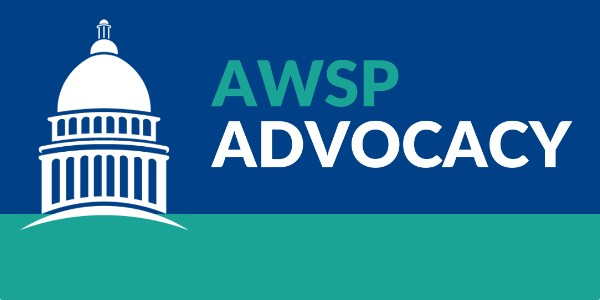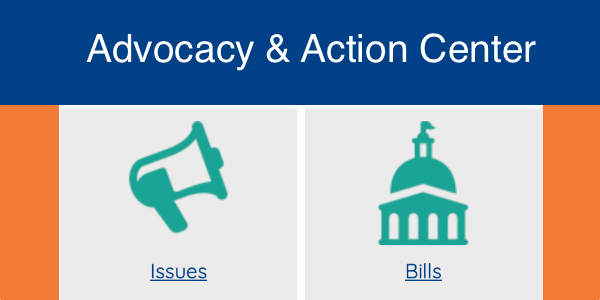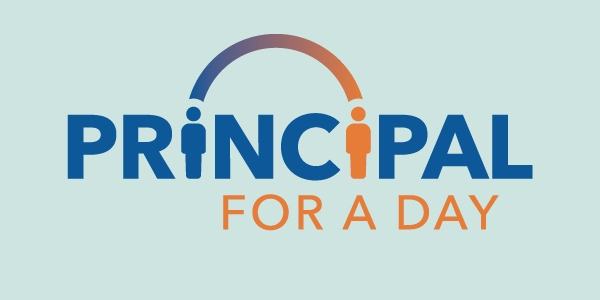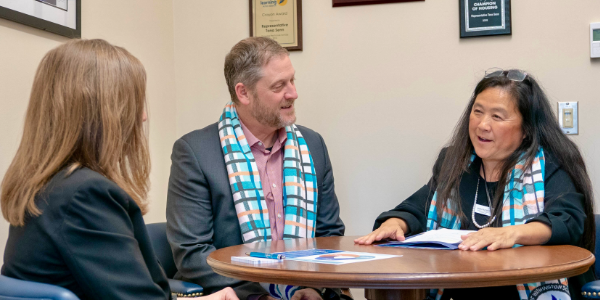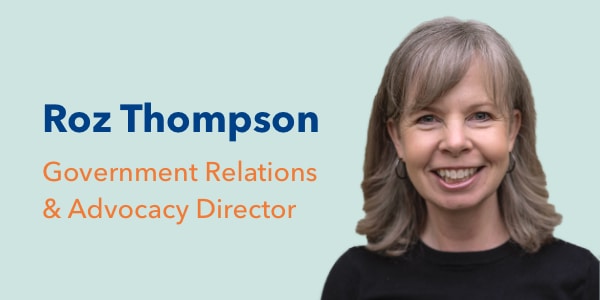Both houses have been on their respective floors debating and voting on various bills and amendments or in caucus/recess privately debating what bills to bring forth. Lobbyists hover outside each chamber’s doors waiting for requested legislators to come out. A lobbyist’s hope is to either encourage vote on a bill, to influence its content via suggested amendments, or to urge defeat.
“We try to steer the boat, we don’t alter the river.” ― J. Earp
Both houses have been on their respective floors debating and voting on various bills and amendments or in caucus/recess privately debating what bills to bring forth. Lobbyists hover outside each chamber’s doors waiting for requested legislators to come out. A lobbyist’s hope is to either encourage vote on a bill, to influence its content via suggested amendments, or to urge defeat.
The bulk of bills affecting pensions, health benefits, and other job-related benefits are all ‘necessary to implement the budget’, (NTIB) so action on any of the proposals is not likely to occur until a budget is released. March 23rd is the rumored date for release of the House budget.
Just FYI, the House has had 1,314 bills introduced; passed 202 and passed 3 Senate bills. The Senate has had 1,153 bills introduced; passed 183 and passed 6 House bills.
The next cut-off is March 13 where all bills except those determined to be NTIB have to be out of their house of origin.
This is just a summary of bills that have either seen some movement since last week’s report or new information has come to light.
Retirement Related Proposals
SB 5360 revises provisions in the public employees’ retirement system, the teachers’ retirement system, and the school employees’ retirement system with regard to plan membership default. It would change the present retirement plan default for new hires from Plan 3 to Plan 2. SB 5360 is on the Senate floor calendar awaiting action. Rumor has it that it will be brought forward for a vote.
Substitute Options for early Retirees
SHB 1139 | This is a large, comprehensive bill that Rep. Santos has tried for three sessions to get passed. As indicated in earlier reports, a section would allow early retirees to return to work certain positions. This bill remains in Rules. Discussions with legislators indicate that she has been asked to ‘downsize’ her bill. Otherwise, it is not likely to move any further.
SB 5350/HB 1413 authorizes the following, at the time of retirement, to purchase an optional actuarially equivalent life annuity benefit. HB 1413 passed the House 90–7. SB 5350 is on the Senate consent calendar.
School Employee Benefit Board (SEEB)Health Related Proposals
HB 2096 delays participation of non-represented Educational Service District (ESD) employees in the School Employees’ Benefits Board (SEBB) until January 1, 2024. Requires the Health Care Authority (HCA) to study ESD health benefits and the impact of ESD participation in SEBB. Legislators have indicated that until they decide what to do about SEBB, that this issue will be put on the back burner.
SEBB Costs: Late last Friday, the HCA released the new SEBB fixed funding rate.
- Prior financial modeling in 2018 produced a SEBB Funding rate for FY20 of $1,174 per month. The Governor’s proposed budget included a SEBB funding rate of $1,170 for FY20 and $1,195 for FY21. Under the refreshed model delivered this week, the new SEBB Funding rate recommendation for FY20 is $1,114 and for FY21 $1,127.
- Prior financial modeling produced an estimate of $860-$900M in additional new state benefits funding (to combine with $2 billion in current state benefits funding of benefits) for the SEBB program for the 19–21 biennium. The updated estimate is now $750M for the 19–21 biennium.
This is clearly a NTIB issue and won’t be decided until budget proposals are released. For more on the SEBB, read this blog post. Take particular of the narrative on TAB 10 of the January meeting and then the report on the meeting on March 7th. Briefly stated, employees who work a minimum of 180 hours/year have the right to organize and bargain for the same insurance benefits as those that work or are anticipated to work 630 hours. PSE indicated they are preparing for negotiations already.
Other Bills That May Have Fiscal/Hr Impacts For Districts:
HB 1813 | Incorporating the costs of employee health benefits into school district contracts for pupil transportation. This bill has been placed on second reading in the House.
SSHB 1087 concerns long-term services and supports. The bills digest reads in part: “Addresses alternative funding for long-term care access. States that the creation of a long-term care insurance benefit of an established dollar amount per day for eligible employees, paid through an employee payroll premium, is in the best interest of the state.” This would create an optional employee paid premium that would help cover long term care coverage for an employee. It certainly will create additional work/monitoring for a school business office. SSHB 1087 passed the House 63–33 and has been sent to the Senate.
SSB 5449/SHB 1399 makes technical corrections requested by the Employment Security Department in the Family and Medical Leave Act passed last session. SB 5449 has been advanced to second reading in the Senate. SHB 1399 passed the House, 71–23 and has been sent to the Senate.
Meanwhile, the currents continue to carry everyone along as the parties attempt to navigate the stream.
Fred Yancey
The Nexus Group



